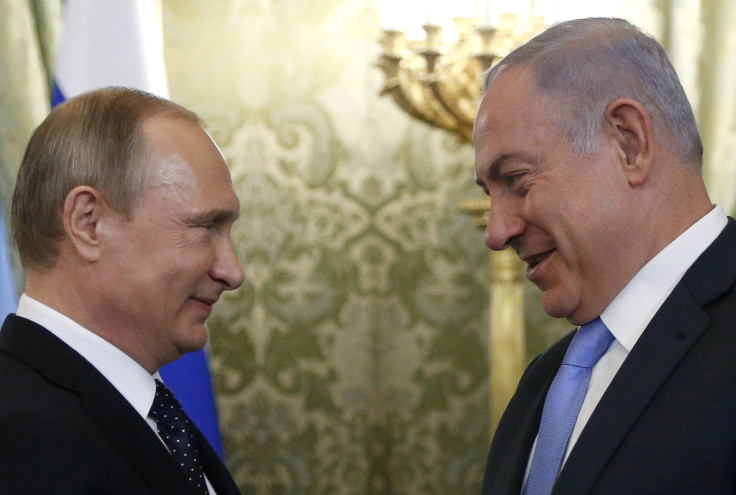Will Trump Go To War With Iran? Russia, Israel Compete For Influence Over US Policy In Middle East

President Donald Trump and Israeli Prime Minister Benjamin Netanyahu are expected to unify their positions on policies in the Middle East, including a strategy in dealing with Tel Aviv's nemesis, Iran, as the world leaders meet for the first time Wednesday in Washington, United Press International reported Tuesday. The move, however, could conflict with another one of Trump's allies, Russia.
Trump and Netanyahu have both long been critics of what they view as aggressive behavior from Iran and the pair censured former President Barack Obama for signing a multilateral nuclear treaty, known as the Joint Comprehensive Plant of Action, in 2015. The treaty lifted Washington's sanctions on Iran in exchange for Tehran's pledge to restrict nuclear development. While Iran has maintained that its nuclear program is strictly for peaceful energy purposes, Trump and Netanyahu have claimed the terms of the deal did not go far enough to limit Iran's military capabilities.
The meeting comes weeks after Trump put Iran "on notice" for conducting a ballistic missile test that did not violate the nuclear treaty, but drew ire among Tehran's critics in the U.S. and Israel. Trump's militant rhetoric toward Iran has been echoed by his pick for defense secretary, James Mattis, who has called Iran "the single most enduring threat to stability and peace" and whose feud with Iran reportedly led to the former general being fired from his position as head of U.S. Central Command by Obama.
The Trump administration's hardline position on Iran puts it at odds with one of its most consistent foreign supporters, Moscow. As Trump opposed Obama's efforts to engage Iran diplomatically, the Republican real estate tycoon-turned-politician also criticized the former administration's cool attitude toward Russia, which Trump has regarded as a useful ally. Trump has gone as far as to discuss direct bilateral coordination with Russia on both countries' campaigns against the Islamic State group, also known as ISIS.
Moscow has enthusiastically accepted Trump's proposal to work together against ISIS, however, it has attempted to push back on the White House's threats against Iran. Russia's anti-ISIS campaign includes a military and political alliance with the Gulf regional power. Both countries support Syrian President Bashar Assad and closely coordinate on the battleground via Russia's airstrikes and Iran's allied militias in the region. Moscow also enjoys the use of Iranian airspace in launching operations against ISIS and other various armed groups attempting to overthrow Assad.
Despite often finding themselves at odds on major issues such as Iran and Palestine, Russia and Israel maintain good relations. However, both Netanyahu and Russian President Vladimir Putin are seeking Washington's support for initiatives that could conflict with one another if Moscow maintains its ties to Tehran.
© Copyright IBTimes 2025. All rights reserved.





















